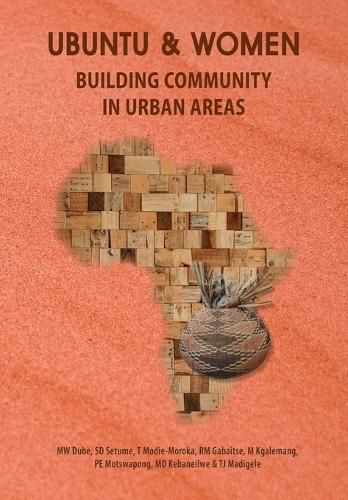Readings Newsletter
Become a Readings Member to make your shopping experience even easier.
Sign in or sign up for free!
You’re not far away from qualifying for FREE standard shipping within Australia
You’ve qualified for FREE standard shipping within Australia
The cart is loading…






The book takes us to women-centred events in Gaborone, the capital city of Botswana. Data was collected from the conversations and events women hold with and for one another on the occasions of bridal, Naomi/Laban, and baby showers. Defining Ubuntu/Botho as the belief that our humanity is only measured by our capacity to welcome, respect and empower the other, this research-based book analyses how women practise Ubuntu/Botho in the urban spaces where the community easily disintegrates to individualism, isolation and poverty. It seeks to explore how Ubuntu/Botho intersects with gender and navigates its space around patriarchy, marriage, motherhood, family and community. It explores rituals and connections between women of different generations such as mothers and daughters, daughters-in-law and mothers-in-law, children and mothers, and their struggles to uphold Ubuntu/Botho in their families, communities and workspaces in the face of patriarchy, urbanisation, capitalism and neo-liberalism. The book employs and generates a multitude of methods and theories to highlight women mothering and delivering Ubuntu/Botho in the urban space communities.
$9.00 standard shipping within Australia
FREE standard shipping within Australia for orders over $100.00
Express & International shipping calculated at checkout
The book takes us to women-centred events in Gaborone, the capital city of Botswana. Data was collected from the conversations and events women hold with and for one another on the occasions of bridal, Naomi/Laban, and baby showers. Defining Ubuntu/Botho as the belief that our humanity is only measured by our capacity to welcome, respect and empower the other, this research-based book analyses how women practise Ubuntu/Botho in the urban spaces where the community easily disintegrates to individualism, isolation and poverty. It seeks to explore how Ubuntu/Botho intersects with gender and navigates its space around patriarchy, marriage, motherhood, family and community. It explores rituals and connections between women of different generations such as mothers and daughters, daughters-in-law and mothers-in-law, children and mothers, and their struggles to uphold Ubuntu/Botho in their families, communities and workspaces in the face of patriarchy, urbanisation, capitalism and neo-liberalism. The book employs and generates a multitude of methods and theories to highlight women mothering and delivering Ubuntu/Botho in the urban space communities.